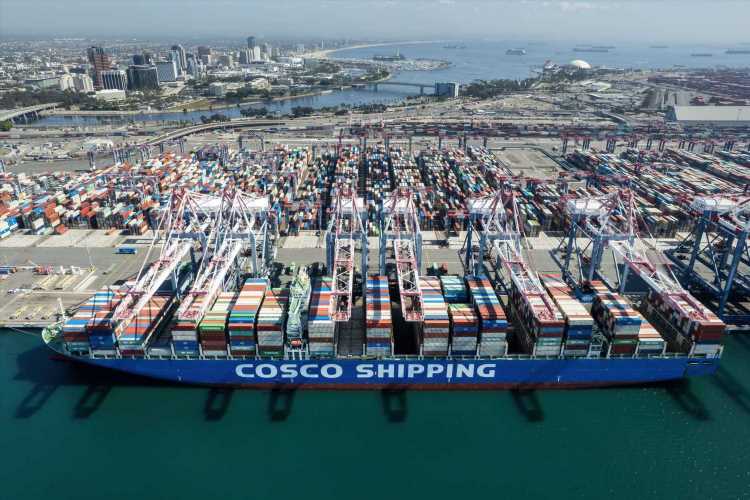WASHINGTON – The Biden administration outlined several initiatives on Tuesday aimed at addressing immediate supply-chain challenges and other disruptions affecting global commerce.
Several senior administration officials, who spoke on the condition of anonymity in order to share details of the proposed plans, said the administration will begin work within the next 60 days with the U.S. Army Corps of Engineers on $4 billion worth of construction work at coastal ports, inland waterways as well as other corps eligible facilities.
The plan will identify and prioritize $3.4 billion in upgrades to obsolete inspection facilities that will make international trade more efficient through the northern and southern borders, a senior administration official said.
"This is a long-overdue infrastructure improvement and it has clearly been a bottleneck in the past," the person added.
The world's supply chain – already exacerbated by the pandemic – is continuing to bear the brunt of surging consumer demand, labor shortages and overseas manufacturing delays, which has led to higher transportation costs and inflation.
On Wednesday, President Joe Biden will visit the Port of Baltimore to discuss how the $1 trillion infrastructure bill passed by lawmakers on Friday will improve ports and strengthen supply chains.
The bipartisan infrastructure bill, which passed the Senate in August but sat idle in the House for months, will finance colossal upgrades to America's roads, bridges, airports, seaports and rail systems.
The bill's passage came on the heels of Biden's attendance at the annual forum of the "Group of 20," or G-20, referring to the 20 major economies that account for more than 80% of world GDP and 75% of global trade.
While at the G-20, Biden convened a summit alongside leaders from 14 other countries and the European Union calling for their unbending commitment on supply chain issues.
"Supply chains are something that most of our citizens never think twice about until something goes wrong. And during this pandemic, we've seen delays and backlogs of goods from automobiles to electronics, from shoes to furniture," Biden said in his debut at the G-20 since becoming president.
"Ending the pandemic is the ultimate key to unlocking the disruptions we're all contending with. But, we have to take action now, together with our partners in the private sector, to reduce the backlogs that we're facing," he said.
Now that the pandemic has highlighted vulnerabilities in the system, he said, "we cannot go back to business as usual."
Last month, the Biden administration unveiled a plan to run operations 24/7 at the California ports of Los Angeles and Long Beach, the nation's busiest port complex.
Shortly thereafter, the twin California ports, which account for 40% of sea freight entering the United States, announced new fines on carriers in order to abate the intensifying logjam of cargo ships.
Starting on Nov. 1, offloaded containers moved by trucks will have nine days before fines start accruing. Containers scheduled to move by rail will have three days. In accordance with these deadlines, carriers will be charged $100 for each lingering container per day.
Source: Read Full Article
